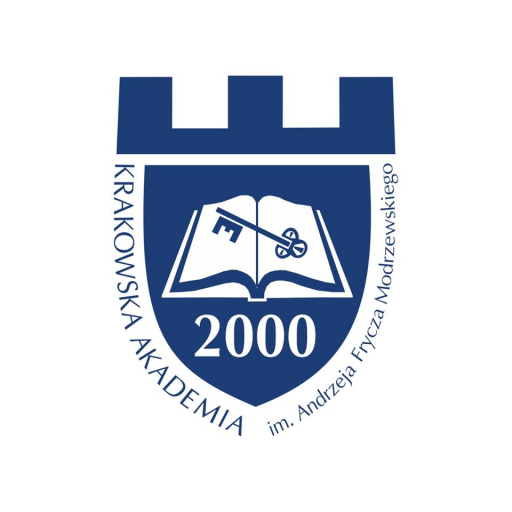Photos of university / #uniofeastanglia
Description
In the most recent Research Assessment Exercise, 90 per cent of the Schools research was graded as world-leading or internationally excellent, and as our teaching is research-led this means that our students are always taught innovative and contemporary topics through our cutting-edge teaching methods.
This degree programme allows you to study the history, theory and politics of two of the key media - film and television - in contemporary culture.
Detailed Course Facts
Application deadline January 15 Tuition fee- EUR 10560 Year (EEA)
- EUR 14600 Year (Non-EEA)
Duration full-time 36 months Languages Take an IELTS test
- English
Course Content
Year 1
During your first year you will be introduced to key critical and theoretical approaches to the study of these two media. You will also look at the history of film and television, and modules that situate these media in broader cultural contexts and historical debates. Your first year also contains Analysis Film and Television, a module specifically designed to introduce you to academic study at university and the key skills needed to begin deconstructing and understanding film and television texts within culture.
Year 2
In Year 2, you take Film Theory and a module called Research Training that helps you to develop the research skills you will need for dissertation and project work in Year 3. In addition to these modules, you can take a wide range of production, history and conceptual modules which may include modules like The Practice of Screenwriting, The Business of Film and Television, Film Genres, Animation and British Cinema since the 1990s. Using these modules, and optional modules in Year 3, you can build pathways through your degree that reflect your interests. These may include pathways like British film and television, film and television production, gender in film and television or world cinema.
Year 2 also allows you to take two modules of Defined Choice. Defined Choice options lists include School of Film, Television and Media Studies modules, but also the broadest possible range of modules relevant to your degree, selected for you in order to help you broaden your horizons. Therefore, Defined Choice enables you to take further Film, Television and Media Studies modules, or to experiment with new subjects, approaches and ideas, or to take a year of language modules. Your personal tutor will work with you to help you make these and other module choice decisions.
Year 3
Year 3 continues our commitment to student choice, giving you the opportunity to plan, research and undertake a dissertation on a topic of your choice with the guidance of a supervising member of staff. Additionally, you choose from a further broad range of specialist Film, Television and Media Studies modules, including modules such as Crime Television, Women, Islam and Film and Teenage Kicks: Media Youth and Subculture. These research-led modules relate to the special research interests of staff members, ensuring that you receive the most up-to-date teaching from enthusiastic lecturers.
Teaching and Assessment
Academic study skills, key concepts, issues and ideas are introduced in lectures and seminars throughout your studies. In Years 2 and 3 there is a greater emphasis on seminar-based modules, which allow students to have time together with tutors to discuss new topics. Modules are chosen from a range offered within the School and across the University. You will spend time studying and researching in the library and you are also likely to spend time on creative work or projects.
Assessment types vary, but it is normal for students to undertake research essays, projects, examinations and presentations across their degrees. Assessments usually take place during and on the completion of modules. In your final year, you will also write a dissertation on a topic of your choosing and with the advice of tutors. There is no final examination. Your final degree result is determined by the marks you receive in years two and three.
All students joining degrees in the School of Film, Television and Media Studies would find it helpful to read Timothy Corrigan's A Short Guide to Writing about Film, (2010, 7th Edition, New York: Longman) over the summer prior to joining the University of East Anglia.
English Language Requirements
IELTS band : 6.5 TOEFL iBT® test : 92
To study at this university, you have to speak English. We advice you to
take an IELTS test. More About IELTSRequirements
- Qualification: BA (Hons)
- A Level: AAB - ABB with at least one humanities subject
- International Baccalaureate: 33 - 32 points with at least one humanities subject
- Scottish Highers: Must have at least one Higher
- Scottish Advanced Highers: AAB-ABB with at least one humanities subject
- Irish Leaving Certificate: AAAABB -AABBBB with at least one humanities subject
- Access Course: Please contact the university for further information
- HND: Please contact the university for further information
- European Baccalaureate: 80-75% with at least one humanities subject
Students for whom English is a Foreign language
We welcome applications from students from all academic backgrounds. We require evidence of proficiency in English (including writing, speaking, listening and reading). Recognised English Language qualifications include:
- IELTS: 6.5 overall (minimum 6.5 Writing with no less than 6.0 in any component)
- TOEFL: Internet-based score of 92 overall (minimum 21 in Speaking component, 21 in Writing component, 20 in Reading component and 18 in Listening components.
- PTE: 62 overall (minimum 62 Writing component with no less than 55 in any component).
If you do not meet the University's entry requirements, our INTO Language Learning Centre offers a range of university preparation courses to help you develop the high level of academic and English skills necessary for successful undergraduate study.
Interviews
The majority of candidates will not be called for an interview. However, for some students an interview will be requested. These are normally quite informal and generally cover topics such as your current studies, reasons for choosing the course and your personal interests and extra-curricular activities.
Students will have the opportunity to meet with an academic individually on a Visit Day in order to gain a deeper insight into the course(s) you have applied for.
Gap Year
We welcome applications from students who have already taken or intend to take a gap year.
Deferred Entry - We welcome applications for deferred entry, believing that a year between school and university can be of substantial benefit. You are advised to indicate your reason for wishing to defer entry and may wish to contact the appropriate Admissions Office directly to discuss this further.
Intakes
The School's annual intake is in September of each year.
Alternative Qualifications
If you have alternative qualifications that have not been mentioned above, then please contact the University directly for further information.
GCSE Offer
Students are required to have GCSE Mathematics and GCSE English Language at Grade C or above.
Assessment
For the majority of candidates the most important factors in assessing the application will be past and future achievement in examinations, academic interest in the subject being applied for, personal interest and extra-curricular activities and the confidential reference.
We consider applicants as individuals and accept students from a very wide range of educational backgrounds and spend time considering your application in order to reach an informed decision relating to your application. Typical offers are indicated above. Please note, there may be additional subject entry requirements specific to individual degree courses.
Work Experience
No work experience is required.
Want to improve your English level for admission?
Prepare for the program requirements with English Online by the British Council.
- ✔️ Flexible study schedule
- ✔️ Experienced teachers
- ✔️ Certificate upon completion
📘 Recommended for students with an IELTS level of 6.0 or below.
Related Scholarships*
- Academic Excellence Scholarship
"The Academic Excellence Scholarship can provide up to a 50 % reduction in tuition per semester. These scholarships will be renewed if the student maintains superior academic performance during each semester of their 3-year Bachelor programme. The scholarship will be directly applied to the student’s tuition fees."
- Access Bursary
Bursary for UK students all subjects where the variable tuition fee rate is payable.
- Alumni Bursary
Alumni Bursary for UK Undergraduate students
* The scholarships shown on this page are suggestions first and foremost. They could be offered by other organisations than University of East Anglia.
Funding
The University will be charging International students £11,700.00 for all full time School of Film and Television Studies undergraduate programmes which start in 2012.











